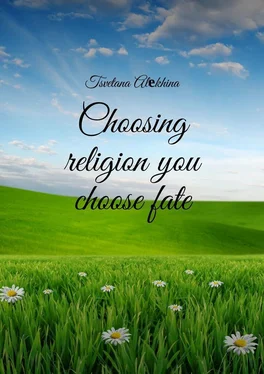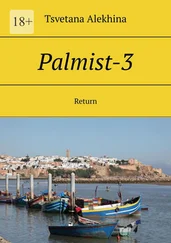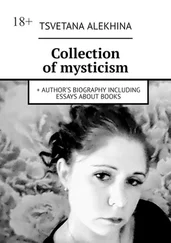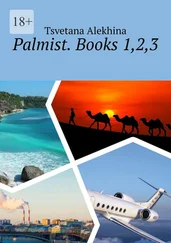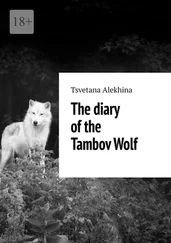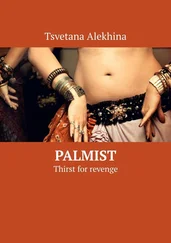Tsvetana Alеkhina - Choosing religion you choose fate
Здесь есть возможность читать онлайн «Tsvetana Alеkhina - Choosing religion you choose fate» — ознакомительный отрывок электронной книги совершенно бесплатно, а после прочтения отрывка купить полную версию. В некоторых случаях можно слушать аудио, скачать через торрент в формате fb2 и присутствует краткое содержание. ISBN: , Жанр: Религиозная литература, на английском языке. Описание произведения, (предисловие) а так же отзывы посетителей доступны на портале библиотеки ЛибКат.
- Название:Choosing religion you choose fate
- Автор:
- Жанр:
- Год:неизвестен
- ISBN:9785005596529
- Рейтинг книги:4 / 5. Голосов: 1
-
Избранное:Добавить в избранное
- Отзывы:
-
Ваша оценка:
- 80
- 1
- 2
- 3
- 4
- 5
Choosing religion you choose fate: краткое содержание, описание и аннотация
Предлагаем к чтению аннотацию, описание, краткое содержание или предисловие (зависит от того, что написал сам автор книги «Choosing religion you choose fate»). Если вы не нашли необходимую информацию о книге — напишите в комментариях, мы постараемся отыскать её.
Choosing religion you choose fate — читать онлайн ознакомительный отрывок
Ниже представлен текст книги, разбитый по страницам. Система сохранения места последней прочитанной страницы, позволяет с удобством читать онлайн бесплатно книгу «Choosing religion you choose fate», без необходимости каждый раз заново искать на чём Вы остановились. Поставьте закладку, и сможете в любой момент перейти на страницу, на которой закончили чтение.
Интервал:
Закладка:
With the adoption of the Christian religion, elements of Byzantine culture began to penetrate into Russia, and this contributed to the more intensive development of art in Russia. The widespread dissemination of Cyrillic-based writing has become extremely important. The first monuments of written culture appeared, which have survived to the present day and can tell a lot about it.
I often hear that millions of people died during the baptism of Russia. What millions could Christians destroy on the territory of Russia? At that time, 35 thousand people lived in Kiev in the 12th century, 25—30 thousand in Novgorod. In ancient Russia, the average population in the city was about 1,000 people, according to scientists. These were giant cities, by medieval standards! What millions of Russians? In the era of Peter 1, the population of the whole country was 7—10 million people. There is no doubt that all these weighty arguments are quite adequate scientific data. Of course, there were conflicts between citizens and the state, the imposition of a new religion, however, as in any other country. We also note that there are still many teachings against paganism, starting from I. Zlatoust and ending with today’s speeches by Deacon Kuraev. It would be silly to talk about large-scale military operations, there is another fact – archeology does not confirm the forced baptism of Russia – it is impossible to hide millions of dead. During the archaeological excavations of ancient Russian cities, no such finds were revealed; these finds would have come in very handy in Soviet times to fight the Church.
Neo-pagans consider the weakening of Russia and the emergence of some kind of dependence on the Byzantine Empire to be a consequence of the «bloody» baptism. The roots of the prehistory of the baptism of Rus grow from a military campaign against a Greek settlement and Vladimir’s further ultimatum to the whole of Byzantium: «I have already taken your glorious city; I heard that you have a maiden sister; if you don’t give her up for me, then I will do the same to your capital as to this city.» Thus, Prince Vladimir managed to get the emperor’s daughter Anna to marry. The German emperor and the French king sought the hand of the beautiful princess. The baptism of Rus did not stop the Russian-Byzantine wars. From that moment on, European rulers began to seek kinship with Russian princes. Yaroslav the Wise married his daughters to the kings of France, Hungary and Norway, and his son married the daughter of the Byzantine emperor Constantine Monomakh. Russian lands continued to grow geographically. Does this indicate a «weakening»?
CHAPTER 5
At the baptism of Russia, it is mentioned that Prince Vladimir dissolved his harem. Was there polygamy in Russia? A family for a pagan Slav is a whole world. His peace and procreation, well-being in the family and much more, is above the public. In those days, during the war, the last men in the family were the last to be sent into battle. There also used to be a custom that obliged the brother of a deceased husband to marry his widow. This custom was widespread in Russia until the 16th century. This custom has its roots in ancient times; the elder brother was fully responsible for the children and the spouse of the deceased. There were simply no single families, this is nonsense. At that time, there were no single mothers, orphanages, etc… The most terrible punishment for a Slav is expulsion from the family; it was considered the heaviest punishment, which was practically equivalent to the death penalty.
During the pagan period, domostroy reigned in families, children obeyed their parents implicitly. The main factor in the upbringing of children is the love of children for their parents, complete obedience in childhood and youth, as well as in pagan families there is such a moment «and taking care of them in old age.»
The main function in the pagan family was procreation. If there was no childbearing in the family, then this family was considered incomplete. It is necessary and important to emphasize that a pagan family is a large family. The state has always respected large families, and in the 20th century, Stolypin relied on large families.
In ancient Russia, the family did not have the right to terminate the marriage. In the pagan era, marriages were concluded in words, rituals were performed, and there was an understanding that marriage with one wife is «forever» and extends beyond the grave. But since the main factor in the family was childbirth, and if the wife could not give birth to her husband’s child, then the husband had the right to take another wife. Most often, there was no divorce as such; just the husband took another wife.
Polygamy in Russia was present in all Slavic tribes, from which the Russian ethnos was subsequently formed. In pagan times, polygamy existed among Western, southern, and eastern Slavs. Before the adoption of Christianity, many princes had several wives. The Polish Prince Mieszko had seven wives, the Czech Prince Slavnik had many wives, the Pomeranian prince had several wives, as well as twenty-four concubines. Among the Old Russian nobility, in addition to polygamy, concubinage also flourished. From our Prince Vladimir Svyatoslavovich had a whole harem. He had 300 concubines in two ancient Russian cities of Belgorod and Vyshgorod, as well as another 200 in the village of Berestov. The prince brought concubines from military campaigns; the concubine became a prisoner, and served as entertainment to the prince and his retinue, as well as concubines were the subject of trade.
After receiving baptism, Prince Vladimir immediately dissolved his harem and abandoned his usual life; he turned to his wife Rogneda with these words: «I have been baptized now. I have accepted the faith and the Christian law, now I should have one wife, which I took in Christianity, but you choose one of my nobles for yourself, and I will marry you to him.» The adoption of Christianity in 988 significantly affected the life of the Old Russian nobility.
On the subject of concubinage, there is one very heartbreaking story, which is known from the chronicle. Prince Yaroslav Osmomysl of Galicia (reigned 1157—1187) was so attached to his concubine Anastasia that he decided to marry her. To do this, he needed to get rid of his legal spouse, the daughter of Yuri Dolgoruky. The prince planned to send his lawful wife to a monastery. Having learned about this, the boyars did not allow him to do this, they sided with the princess, raised an uprising, and burned Anastasia alive. The prince sent Anastasia’s son to prison. The prince was sworn to live with his lawful wife.
Who are the Slavic gods? Gods are a rather late invention of the human mind. The most ancient people did not believe in gods, it is difficult to believe in what you do not see. Almost nothing is known about the religion of the ancient Slavs, the first sources about Slavic culture appear in the 6th century. This is fragmentary information in written sources; they appeared after reaching the borders of the Byzantine Empire. The Slavic religion was formed for quite a long period, it was a process of intertwining the ancient Slavs from the Indo-European community with the mythology and religion of neighboring peoples of the II—I millennium BC. Therefore, naturally, there is a significant Indo-European layer in the Slavic religion. It is assumed that this period includes images of the god of thunderstorms and fighting squads (Perun), the god of cattle and the other world (Veles), the image of the faceless deity Yarilo, and the deity of the Sky-Father (Stribog). In addition, Indo-European gods include such images as the Mother of Cheese-the Earth, the associated goddess of weaving and spinning (Mokosh), the solar deity (Dazhbog), and many others. In the first half of the 1st millennium BC, the mythology and religion of the Slavs were significantly influenced by the Celts and the steppe Iranian-speaking population of the Scythians, Sarmatians and Alans.
Читать дальшеИнтервал:
Закладка:
Похожие книги на «Choosing religion you choose fate»
Представляем Вашему вниманию похожие книги на «Choosing religion you choose fate» списком для выбора. Мы отобрали схожую по названию и смыслу литературу в надежде предоставить читателям больше вариантов отыскать новые, интересные, ещё непрочитанные произведения.
Обсуждение, отзывы о книге «Choosing religion you choose fate» и просто собственные мнения читателей. Оставьте ваши комментарии, напишите, что Вы думаете о произведении, его смысле или главных героях. Укажите что конкретно понравилось, а что нет, и почему Вы так считаете.
